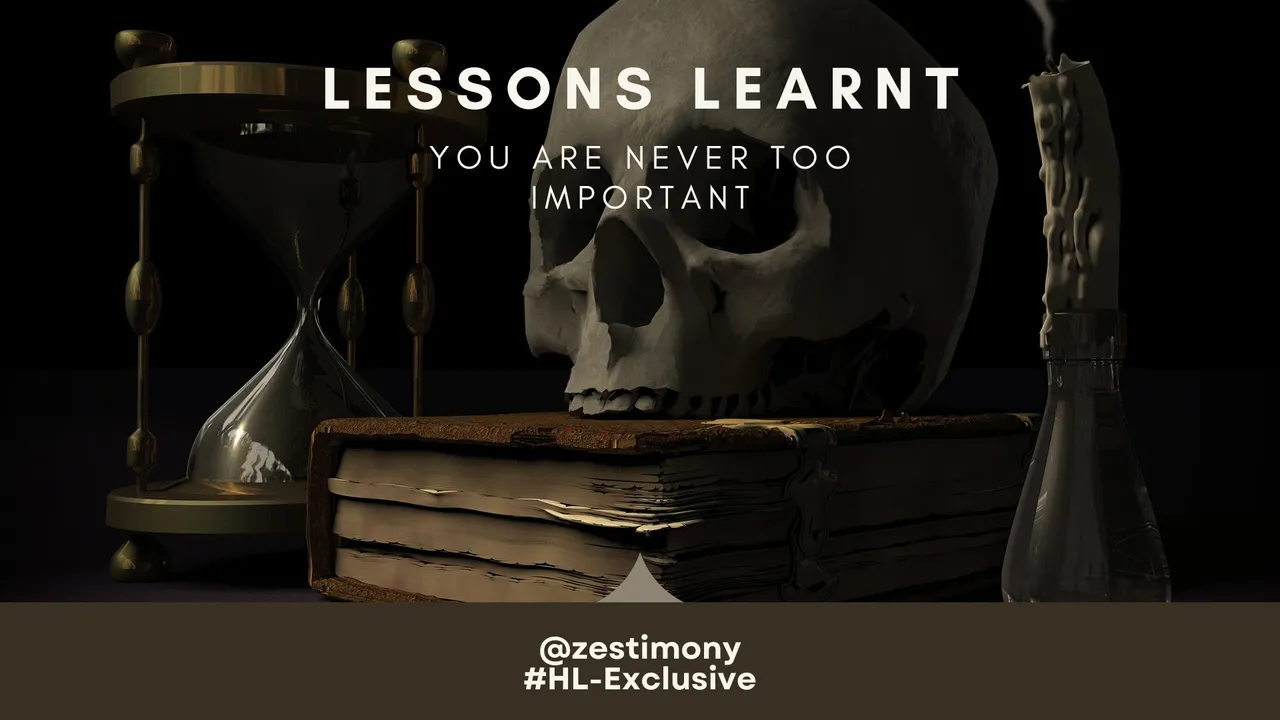
Image by Reimund Bertrams from Pixabay
This year has been a long one, and with a heart full of gratitude, I wish to say thanks for all the moments I enjoyed. Among everything to be grateful for, I am grateful for a wonderful lesson I have come to learn, and that lesson is simple:
No one is indispensable
I Am Not Indispensable
This lesson has taught me that no one, not even me, is absolutely necessary or important in any given situation. So, it seems to say that anyone can be replaced or that their absence wouldn't make a big difference. This can apply to both professional and personal contexts.
In a professional context, it means that no matter how skilled or successful an individual may be, there is always the possibility that they could be replaced by someone else with similar skills or by technology. No one is irreplaceable in the workforce.
In a personal context, it means that no individual is so essential to the lives of others that their absence would be catastrophic. It is important to recognize that we are all dependent on each other to some extent, but ultimately we are all capable of functioning independently and moving on if necessary.
The realization that "no one is indispensable" has been a helpful reminder to not take myself and my abilities for granted, and to continually work on improving and adapting in order to stay relevant and valuable. It has also been a reminder to not rely too heavily on any one person or thing, as change is a constant part of life.
Understanding that "no one is indispensable" is helping me try to stay humble because it reminds me of my own limitations and the possibility that they could be replaced by someone else or by technology. It is also helping me keep myself grounded and avoid developing an overinflated sense of self-importance.
When we recognize that we are not irreplaceable, it can help us to be more open to learning and growing, as we recognize that we have room for improvement. It can also lead us to be more grateful for the opportunities and successes that come our way, as we understand that they are not necessarily due to our own inherent worth, but rather to the hard work and effort we have put in.
Additionally, understanding that no one is indispensable is helping me become more empathetic and understanding toward others. When we recognize that everyone is fallible and has their own unique set of strengths and weaknesses, it can help us to be more forgiving and less judgmental.
Technology and People Amplifies This Lesson
The lesson that "no one is indispensable" is a valuable one because it reminds us of our own humanity and the limitations of our abilities. It is easy to fall into the trap of thinking that we are irreplaceable, especially if we have achieved success in our careers or have a certain set of skills that are in high demand. However, the truth is that anyone can be replaced, whether it is due to technological advancements, changes in the market, or simply the availability of someone else with similar skills.
This lesson is especially important in the age of technology, when automation and artificial intelligence are replacing human workers in many industries. While technology can be a great tool for increasing efficiency and productivity, it also means that certain jobs and skills are becoming obsolete. People need to keep learning and changing if they want to stay useful in a job market that is always changing.
Everyone can be replaced in a social or personal setting, which is another way to say that no one is indispensable. No matter how much we value ourselves or believe that we are essential to the lives of others, the reality is that people come and go in our lives, and we must learn to adapt and move on. This can be difficult, but it is a necessary part of life and helps us learn resilience and self-sufficiency.
Bottom Line
Overall, understanding that no one is indispensable can help us to stay humble and grounded, and to approach life with a sense of gratitude and appreciation for what we have rather than a sense of entitlement.
